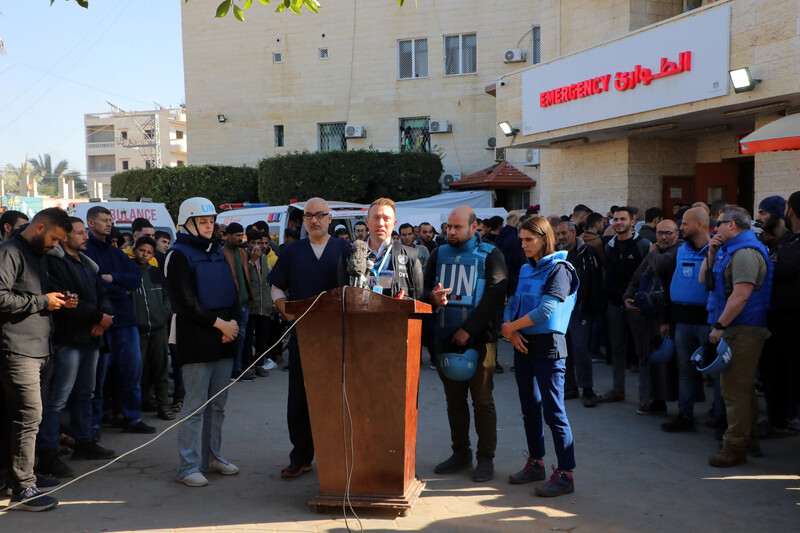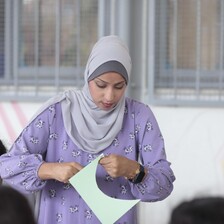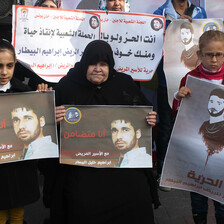The Electronic Intifada 10 January 2024

A World Health Organization team has warned that Gaza’s medical system is rapidly falling apart.
APA imagesFayza Hajo needs to regularly visit a clinic so that she can be treated for diabetes.
In the early stages of Israel’s current war against Gaza, it took many attempts before she could reach the clinic. Eventually, she made it there.
She is supposed to make another trip. But it is now too unsafe.
Israel has ordered the complete evacuation of the Maan area in Khan Younis, southern Gaza, where the clinic is located.
“The area has become very dangerous,” she said.
Hajo, 60, is unable to buy insulin. She doesn’t have sufficient funds and, in any event, many essential medicines are not available.
“There is absolutely no other solution” to receiving treatment, she said. “I cannot delay it. Otherwise, I will have diabetic attacks.”
Israel has repeatedly fired on and invaded hospitals during its genocidal war against Gaza. Many have been forced to halt their work.
Just 15 out of Gaza’s 36 hospitals are now functioning – and just partly.
Israel has repeatedly refused the World Health Organization and other international bodies permission to deliver medical stocks at Gaza City’s Central Drug Store.
The WHO has been unable to access hospitals in the northern half of Gaza for the past two weeks.
Its work in the Middle Area and further south has been hampered by Israel’s attacks on hospitals.
The WHO needs to bring fuel for ambulances and other supplies to hospitals. Violence in their vicinity prevents patients and ambulances from accessing them.
According to the WHO, the medical system in Gaza is collapsing rapidly.
Three hospitals in the cities of Deir al-Balah and Khan Younis are at risk of closure. The surrounding areas have been attacked and their inhabitants ordered to leave.
“Who will take care of my children?”
Salem Barbakh is taking shelter at a school in Khan Younis, after having to leave his home. He is very worried about his brother Muhammad, a 30-year-old who requires kidney dialysis every two weeks.
“Unfortunately we cannot bring him to the hospital,” Salem said.
The scarcity of clean water in Gaza is adding to the family’s problems.
“The water is very salty,” said Salem. “That affects him in a bad way. Every day I walk to different shelters to collect bottles of clean water for my brother. I’m trying to ensure his health is not damaged severely.”
The family was distressed to learn that one of its neighbors recently died from kidney failure. The man in question had not received the treatment he required during the current war.
“We are living in a state of great anxiety because of the constant bombing, because nothing is available and because of my brother’s health problems,” Salem said. “We don’t want to lose him and we are trying to do what we can for him.”
Sawsan al-Aqraa, 45, is taking shelter at the European Gaza Hospital near Khan Younis. She is staying in a tent with her four children after moving repeatedly since the war was declared.
For the past eight years, al-Aqraa has been unwell with blood pressure issues. Finding the medicine she needs has been an ordeal.
None was available in pharmacies.
Through the help of doctors that her family knows, she finally found some medicine. “But I only have enough for a week,” she said.
“I don’t want my condition to get worse or have complications,” she added. “Who will take care of my children?”
“They need to eat, even if it is very little. They need someone to keep an eye on them because this place is crowded. And we’re worried that this crowding will result in the spread of infections. The children need me to comfort them. They are afraid. The bombing never stops even for a moment.”
Ruwaida Amer is a journalist based in Gaza.





